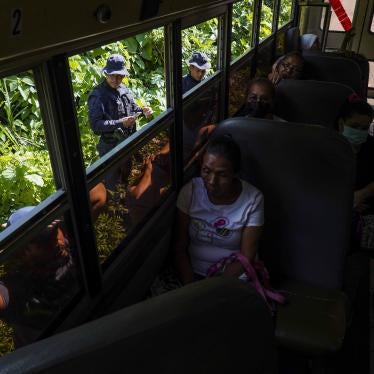Human Rights Watch joined with Amnesty International to urge the House of Commons Standing Committee on Public Safety and National Security to identify extra dates for public hearings on Bill C-3. The groups criticized the Committee for announcing public hearings and then closing the witness list just two days later, leaving many organizations and individuals with expertise on security certificates and in other relevant areas no opportunity to present evidence.
Amnesty International and Human Rights Watch were dismayed to learn that the Committee compiled a witness list within days of scheduling the hearings and announced late last week that the list was closed. This left many groups with expertise on security certificates, including our own, no opportunity to appear and give evidence. We understand that the hearings cannot accommodate every group with an interest in the bill. However, the rush to schedule the hearings and the hasty compilation of a short witness list—in the absence of broader community consultation—will only serve to disadvantage the Committee as it continues its deliberations on the bill.
Both of our organizations, for example, were granted leave to intervene in Charkaoui v. Canada, the Canadian Supreme Court case that gave rise to Bill C-3. By granting such leave, the Supreme Court recognized that organizations with specific and longstanding experience in international human rights law, policy, and advocacy have a role to play in considering whether Canada’s counter-terrorism and immigration measures comply with its international legal obligations. A number of other groups and organizations with expertise in relevant areas of national security, civil liberties, human rights, and community relations have also been shut-out of the process—and to our knowledge none of the men most directly affected by the security certificate regime will testify.
The powers contemplated by Bill C-3 raise compelling issues that will affect thousands of foreigners resident in Canada. Thorough deliberation on the bill requires that the public hearings provide a forum for the key actors with expertise in relevant areas, as well as community members most likely to be directly affected by it.
We call on the Committee as a matter of urgency to hold additional hearings before continuing on to a clause-by-clause review of the Bill C-3.
Sincerely,
Alex Neve
Secretary General
Amnesty International Canada
Joanne Mariner
Director of the Terrorism and Counterterrorism Program
Human Rights Watch






